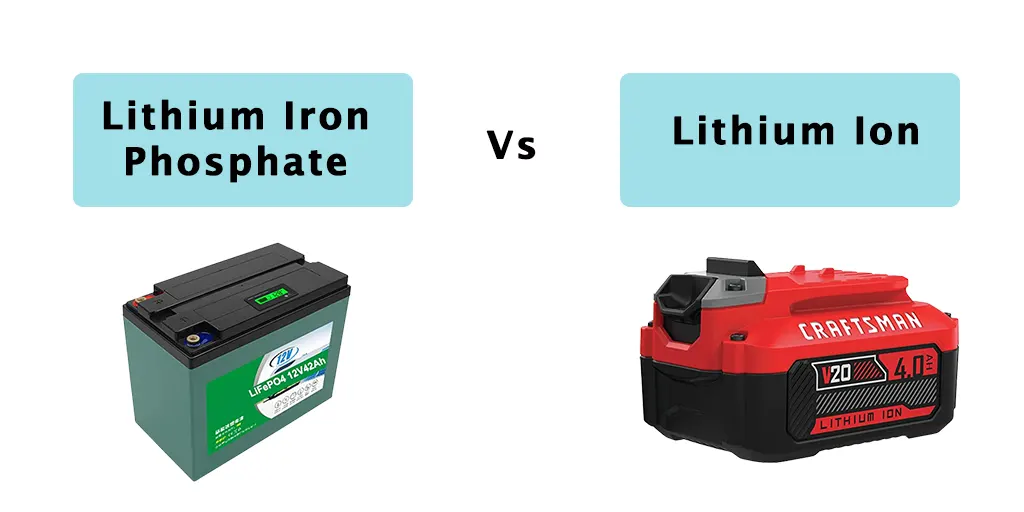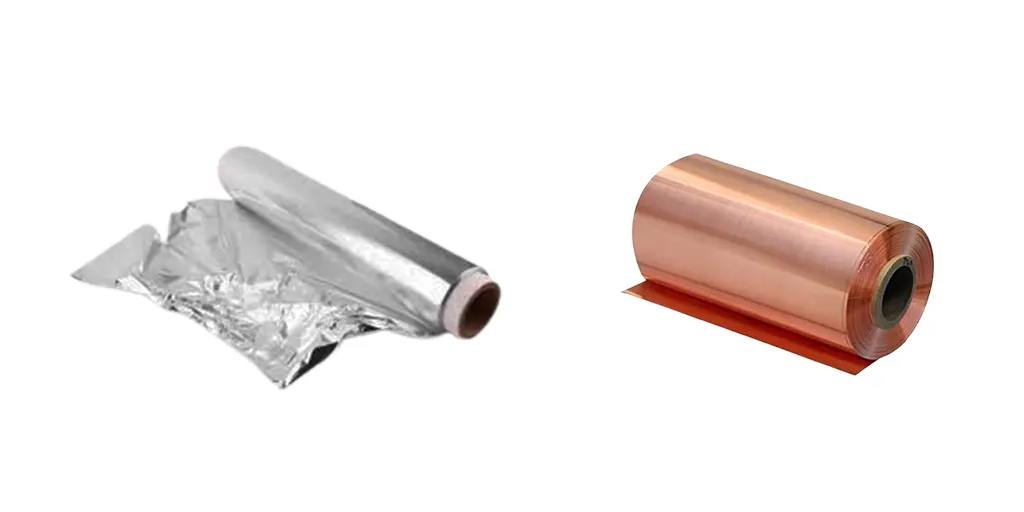Being members of the same lithium family, you will find many differences between Lithium Iron Phosphate and Lithium Ion batteries. That’s why they differ in every aspect from each other.

In this article, I’ll show you the differences between LiFePO4 and Li-Ion batteries. So, here is a 3 minutes quick comparison between these two batteries.
Why is LiFePO4 Battery Different From Li-Ion?
The main difference between these two batteries is their chemistry. LiFePO4 battery has a Lithium Iron Phosphate cathode, and Li-ion battery has a Lithium Ion cathode.
A Quick Comparison Table Between LiFePO4 And Li-Ion Battery
| Specification | LiFePO4 Battery | Li-Ion Battery |
| Cost | $137/ kWh | $132/ kWh |
| Life Expectancy | Maximum 10 Years | Around 2 to 3 Years |
| Size | Bigger In Size | Smaller In Size |
| Availability | Widely Available | Widely Available |
| Best Applications | Electric Vehicles, Solar Battery Bank | Smartphones, Digital Devices |
| User Friendliness | Very User-friendly | Very User-friendly |
The Detailed Comparison of LiFePO4 vs. Li-Ion Battery
Cost
Lithium iron phosphate batteries are more expensive than Lithium-ion batteries.
The main reason for that is the cost of components. Lithium phosphate ion cathode and graphite carbon electrode anode with metallic backing are expensive.
On the contrary, lithium-ion cathode and graphite anode are less expensive. Again, a higher charge cycle is another reason for the higher cost of the LiFePO4 battery.
According to Romain Metaye, a researcher on solar energy, you have to spend around $137 per kWh, whereas lithium-ion batteries cost about $132 per kWh.
Life Expectancy
You will find huge differences between LiFePO4 and Li-ion batteries in life expectancy. According to a research paper published in the Applied Energy journal, “LiFePO4 batteries have up to 5000 charge cycles at 80% depth of discharge.”
So, if you properly use this battery, it will last up to 10 years. This extended lifespan and charge cycle are possible because of its battery chemistry. The superior cathode and anode materials allow this battery to give service for a prolonged time.
In contrast, according to Tektronix, a research-based agency, a Lithium Ion battery has a maximum of 200 to 500 charge cycles. Altogether, it lasts about 2 to 3 years. So, lithium-ion batteries have a far less life expectancy than LiFePO4 batteries.
Size
In general, most LiFePO4 batteries are larger compared to lithium-ion batteries. The main reason for that is the use of these two batteries.
Lithium-ion batteries are now used in almost all kinds of battery-run appliances. On the other hand, LiFePO4 batteries are used in vehicles and as battery banks.
You will get both prismatic cells and cylindrical cells of LiFePO4 batteries. On the contrary, Lithium-ion batteries come in various sizes. You will get cylindrical, prismatic, polymer, pouch cells, etc.
Since lithium-ion batteries are used in various small, medium, and large size devices, this battery comes in a wide range of sizes according to its use.
Availability
In terms of availability, lithium iron phosphate, and lithium-ion batteries are almost similar. They are both in the market for quite some time and are widely available.
However, since lithium-ion batteries are used in more places than LiFePO4 batteries, they might be more readily available than LiFePO4 batteries.
But it doesn’t mean you won’t find LiFePO4 batteries in the stores. Because of their long-lasting performance and excellent safety features, people are taking more interest in this battery.
Best Applications
LiFePO4 batteries have 325 watt-hours per liter energy density. In contrast, lithium-ion batteries have 450 watt-hours per liter. So, LiFePO4 batteries have less energy density than lithium-ion batteries.
Because of the low energy density, LiFePO4 batteries are unsuitable for small devices like smartphones. In most cases, this battery is mainly used for electric cars, electric bikes, and solar power banks.
On the other hand, lithium-ion batteries are used in all types of devices, including smartphones, smartwatches, and other devices.
User Friendliness
LiFePO4 batteries are more user-friendly than lithium-ion batteries because the former is safer and performs better. LiFePO4 batteries have many safety features.

For example, aluminum and copper foil protects LiFePO4 batteries from fire, ignition, or explosion. LiFePO4 batteries are virtually maintenance-free. Plus, it lasts longer than lithium-ion batteries.

Eng. Matthew Joseph Nandirio is the Founder of walkingsolar.
After graduating from the University of Houston in 2002, matt started working as a Solar Electrical Engineer for several multi-national solar energy companies.
He has a wide range of experiences including solar system requirement analysis, planning, maintaining, debugging and even solar device development through research.
He now shares his 20 years of expertise through his articles on the walkingsolar website.
Further, he is also the author of two books on Solar Technology, “Solar Power for Villages” and “DIY Solar System for Dummies”.

